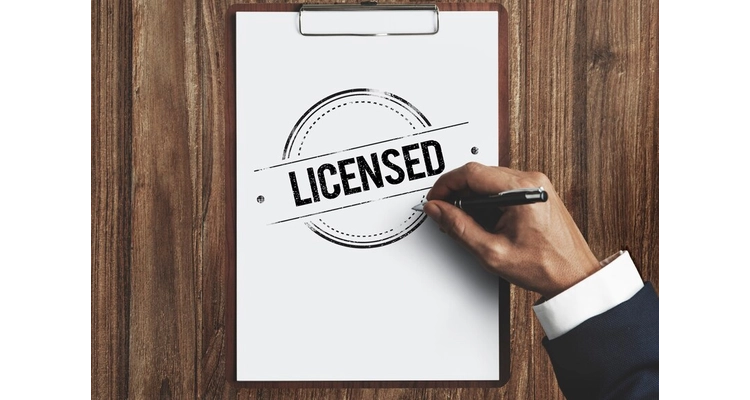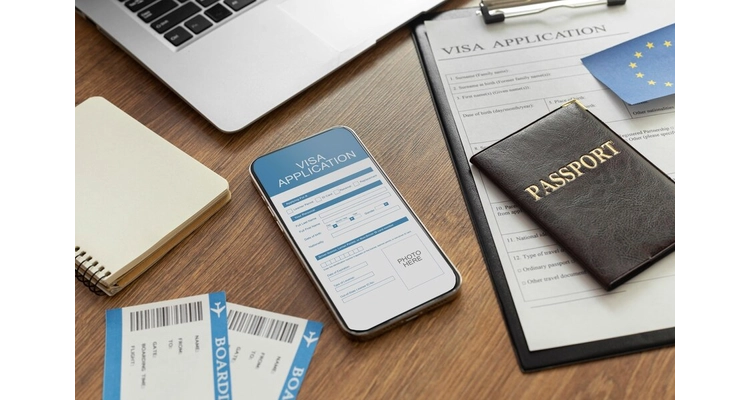Why do so many entrepreneurs prefer to start their businesses in Dubai? Being situated in a favourable area with excellent facilities and being a tax-free city, Dubai has grown to be one of the largest centres for commerce around the globe. The UAE Government report suggests that over 90% of all companies are classified as SMEs in Dubai.
This city holds many opportunities for you, no matter if you decide to open a store, a technological company, or a consulting agency. Starting a business in Dubai can seem overwhelming at first, but with the right guidance, it becomes manageable.
Here in this blog, are some critical initial actions and insights that will help you in finding out how to start a business in Dubai.
Why Start a Business in Dubai?
- Tax-Free Environment: There are no individual or corporate income taxes in Dubai, which creates a perfect environment for business.
- Strategic Location: Arranged at the intersection of Europe, Asia, and Africa, Dubai opens up the market for overseas commerce.
- World-Class Infrastructure: Dubai boasts a modern transport system, communication networks, and other infrastructural facilities.
- Diverse Economy: Such sectors as tourism, estate, IT and finance are developed beyond petroleum hence enhancing business operations.
- Ease of Doing Business: The emirate allows easy incorporation and registration, and the Dubai free zones offer fast licence issues.
- Free Zones: To be more specific, free zones offer 100% foreign ownership, customs duty exemption, and other privileges to the enterprises.
- Strong Legal Framework: Dubai is named as one of the few countries that have a strong and investor-friendly legal system.
- Skilled Workforce: The challenge of hiring skilled workers therefore turns into one that is easy to solve due to the ample supply of professional and skilled workforce across the globe.
- High Quality of Life: Dubai offers a luxurious lifestyle, attracting both investors and skilled workers.
- Stable Economy: It also noted that the UAE has a stable and growing economy which is suitable for long-term investments.
Things to Know Before Setting Up Your Business
There are some factors you will need to consider before you begin the process of registration in Dubai to establish your business. We will be looking into each of them, so let’s proceed.
Comparing Economic Zones: Mainland, Free Zones, and Off-Shore
Before you start your company arrangement in UAE, you need to choose whether you want to set up and run your commerce in Mainland, Free Zone or Offshore. All of them have their focal points and characteristics depending on your company’s needs.
Mainland
If you’re looking to set up a business with the flexibility to trade directly with the UAE local market and internationally, setting up on the Mainland is a reasonable alternative. Mainland companies can work anywhere in the UAE and are not limited to designated regions.
The UAE government has made it easier for remote investors to hold full ownership of their businesses in most divisions, thanks to recent changes in ownership laws. Mainland businesses are subject to UAE controls and enjoy the benefits of being able to exchange within the local market, but they must comply with certain Emiratisation prerequisites and other administrative guidelines.
Benefits:
- Trade flexibility: Mainland companies can trade directly and internationally with the UAE local market.
- Location flexibility: Businesses can operate anywhere in the UAE.
- No restrictions on office space: Opportunity to select any location for your office.
- Ownership: Since 2020, most trade activities have allowed 100% foreign ownership, though some strategic sectors still require a local Emirati partner.
- Taxation: Subject to 5% VAT and 9% corporate tax on benefits above AED 375,000. There is no personal income tax.
Considerations:
- Regulatory oversight: More stringent regulations and required approvals from
- various government entities.
- Emiratisation: It is required to have at least 2% of the talented workforce as Emirati nationals.
Free Zone
If you need total control of your business, apply for a licence and space in one of Dubai’s free zones. The Dubai government presented the idea of free zones to draw in worldwide investors to set up companies in the city.
It’s a special economic region where business owners can enjoy full ownership, 9% corporate taxation (to be applied to UAE businesses on benefits above AED 375,000), and 0% individual income tax.
In any case, a major restriction when running a business in a free zone is the failure to set up coordinated commerce with the local UAE market.
Currently, Dubai has more than 30 free zones in operation. Generally, each free zone is outlined around an industry category and offers licences to companies within those categories. Here are a few examples:
- Dubai Multi Commodities Centre (DMCC)
- Dubai International Financial Centre (DIFC)
- Dubai Airport Freezone
Benefits:
- Ownership: 100% remote ownership without the requirement for a UAE national sponsor.
- Business-friendly tax environment: There’s a 0% personal tax rate, no corporate tax applies, and particular transactions within assigned zones are exempt from VAT.
- Repatriation: 100% repatriation of capital and benefits.
- No currency restrictions: Freedom to transact in any currency.
- Industry-specific: Each free zone is tailored to specific industries, providing dedicated support.
Considerations:
- Trade limitations: You cannot trade directly with the UAE local market without a distributor.
- Location restriction: Must operate within the designated free zone.
Offshore Companies
Offshore companies can also be enrolled in a free zone, and enjoy many of the same benefits. In any case, it’s not a substitute for a free zone company. The main difference between a free zone company and an offshore is the operations of the commerce.
Offshore companies are permitted to have business activities outside the UAE and not inside. They also have no requirements for minimum capital deposited before incorporation.
However, unlike operating as a free zone business, a sponsor is required, which will restrict your foreign ownership to only 49%.
Benefits:
- Ownership: Full foreign ownership.
- Privacy: High level of confidentiality and asset protection.
- No minimum capital requirement: Flexibility in financial structuring
Considerations:
- Limited operations: Cannot conduct business within the UAE local market.
- Sponsor requirement: Requires a local sponsor, which restricts foreign ownership to
- 49% for certain operations within the UAE.
- Banking restrictions: May face challenges in opening a local corporate bank account
Types of Licences
Other than choosing a zone, you’ll also be required to recognize the type of licence required. The Department of Economic Development (DED) issues trade licences and there are 3 main types you can apply for:
1. Commercial Licence
A Commercial Licence allows you to set up a business in Dubai that involves trading activities or the buying and selling of goods. This licence covers businesses in import & export, sales, logistics, travel & tourism, general stores and real estate.
2. Industrial Licence
The Industrial Licence is issued to businesses engaged in manufacturing activities that transform natural materials and resources into final products – manually or mechanically. This licence covers businesses such as textiles manufacturing, metal manufacturing and paper manufacturing.
3. Professional Licence
The Professional Licence is issued to businesses that are service providers, artisans or craftsmen. Examples of businesses that apply for this type of licence include medical services, beauty salons and repair services.
Besides licences, various visas can be applied for in the Dubai free zones; it is essential to
understand the different types.
Sponsorship
No local sponsor is required when setting up in a free zone like DMCC. One of the main benefits of consolidating in a free zone is that you simply are able to set up an entity with 100% foreign possession without the need for a UAE national as a partner or sponsor.
Dubai Free-Zone Company Setup Process
When setting up a business, free zones are popular among foreign entrepreneurs as they offer:
- 0% personal tax
- Low corporate tax rates
- 100% company ownership
- 100% repatriation of capital and profits
- No currency restrictions.
Steps on How to start a business in Dubai
Step 1. Choose an industry

There are numerous businesses in the UAE and plenty of opportunities for development. You might be enticed to jump ahead to the actual setup process straight away, however, we suggest that you decide on the nature of your business upfront.
In Dubai and the UAE, many locations only permit specific business activities. Be careful not to start a business in Dubai, only to realize that you can’t operate in your chosen location!
For example, certain free zone locations cater to specific activities or industries, such as media, finance or tech. Let’s take a look at Dubai Media City. As its name suggests, it is a free zone committed to media companies, or businesses operating media-related exercises. Dubai Media City hosts well-known media companies like BBC, CNN and Thomson Reuters.
Over the years, however, a number of sector-specific free zones have begun to welcome common business activities, and not just the ones they are planned for.
Restrictions aside, there are other reasons why you may want to set up in close proximity to businesses in the same sector as you. Look at transport links too. If your business relies heavily on import and export, you should consider one of the free zones situated near an airport or port.
Step 2. Choose a location
With over 30 free zones in Dubai to select from, it generally makes sense to set up in near proximity to businesses in the same sector. The type of business you have can influence your choice of free zone for establishment.
The Dubai Multi Commodities Centre (DMCC) has been recognized as the Global Free Zone of the Year for nine consecutive years, solidifying its reputation.
Step 3. Choose your company name
The UAE has some strict naming conventions, so before you commit to a company name, make sure it is legally acceptable.
Names containing offensive language, or referring to religious, sectarian, or political groups like the FBI or Mafia, are prohibited. If you choose to name your business after a person, that person must be a partner or owner of the company and their full name must be used – no initials or abbreviations.
Step 4. Complete the incorporation paperwork
When considering how to start a business in Dubai, if you have made it this far, you are now past the most crucial decisions. At this stage, you will want to deal with the appropriate paperwork.
You will be required to complete an application for your chosen company name and activity, to be provided along with copies of shareholders’ passports to the relevant government authorities. Some free zones will require additional documentation, such as a business plan or Non-Objection Certificate (NOC) – a letter from a current sponsor confirming that you are allowed to set up another business in the UAE.
When you come to register your company in UAE, you have to complete an application to register your chosen company name and activity, along with copies of shareholders’ passports.
Mainland companies will be required to meet certain capital requirements, which must be stated in a Memorandum of Association.
Checking and submitting your paperwork
You need to contact the Department of Economic Development of your chosen emirate to register your business activity and trade name and then submit the required documentation. You can find links to the respective offices on the UAE government website, under Information and Services.
Once your application has been processed, your company licence will be issued.
Navigating the paperwork at this stage is maybe the most challenging task you will have to handle. While it might take you weeks to months to adequately understand and complete this stage of the process, assistance from Virtuzone at this stage of the process is often invaluable.
For anyone who is averse to monotonous, difficult paperwork with lots of fine details, we strongly recommend that you utilise our expertise. The money and time saved during this phase alone more than pays for itself.
Step 5. Apply for a licence

Gather all necessary documents, including location addresses and legal information, before submitting your licence application. In some circumstances, you’ll need to apply for licensing approval from other authorities. Once ready, you’ll need to submit:
- Initial approval receipt and all the previously-submitted documents
- The lease contract provided by the Real Estate Regulatory Agency (RERA)
- Duly attested service agent contract (for civil establishments and companies that are 100% owned by non-GCC nationals), the UAE involving a local service agent
- Approval from other government entities concerned
Step 6. Open a bank account
Once your paperwork has been returned, you may have all the documentation you would like to open your corporate bank account. The UAE is home to numerous banks, both local and worldwide, including;
- HSBC
- Citibank
- Barclays
- Abu Dhabi Commercial Bank
- Commercial Bank of Dubai
- Emirates NBD
Choosing the one that’s right for you’ll depend on your specific requirements. You will require a bank account before you’ll start trading within the UAE.
How to open a UAE business bank account
Opening a bank account in the UAE typically requires two to four weeks. The bank will want to know:
- Your primary business areas
- Your anticipated volume of currency
- Total deposits
- Revenue levels
- Your main customers and suppliers
Once your paperwork has been returned from the government you will have all the documentation you need to approach the bank of your choice.
Step 7. Apply for a visa

Applying for a visa is the ultimate step on how to begin a business in Dubai. In addition to applying for your own visa, numerous free zones allow you to submit applications for staff and dependents. The exact number you can submit will depend on which free zone you choose to set up in.
Suppose you are looking to obtain visas for a spouse, child, maid or driver. In that case, it is best to seek expert advice to ensure that, firstly, it is possible to do so in your chosen free zone, and secondly, that both you and anyone you are hoping to sponsor for a visa meet all of the entry criteria.
Assuming that this all checks out, the process is made up of four simple stages:
- Entry permit
- Status adjustment
- Medical fitness test
- Emirates ID registration and visa stamping
There is no limit to the number of visas a mainland company can apply for, whereas free zone companies will have some restrictions, which vary from one free zone to another.
Wrapping Up
Starting a business in Dubai offers different preferences, from its tax-free environment and crucial location to its world-class infrastructure and consistent legal framework. The city’s diverse economy, free zones, and ease of doing business make it a culminating destination for entrepreneurs looking to tap into worldwide markets. With access to a skilled workforce and a high quality of life, Dubai gives both exchange opportunities and an incredible living environment. Whether you’re an aspiring small trade owner or an established venture, Dubai presents a consistent and beneficial platform for trade improvement and long-term success.
FAQs
How to start a business in Dubai with no money?
Seek government grants, incubator programs, or free zones offering low-cost startup options.
How to start a business in Dubai online?
Register through Dubai’s e-commerce platforms, choose a free zone, obtain the necessary licences, and set up your online store.
How long does it take to start a business in Dubai?
It typically takes 3-7 days to set up a business, depending on approvals and documentation.

